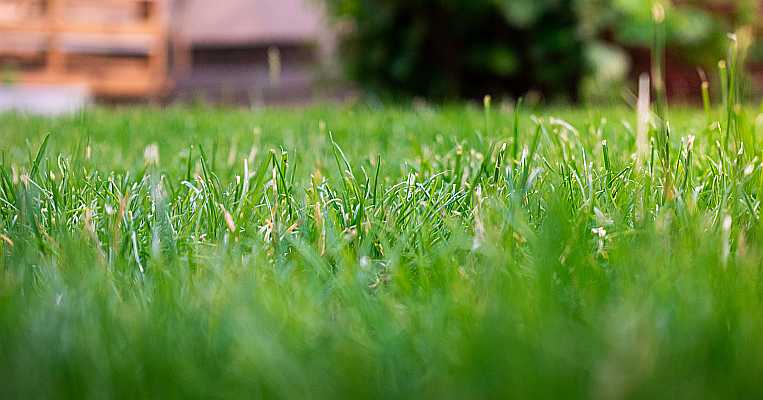Is RV antifreeze toxic to plants? Or will RV antifreeze kill grass?
Certainly, after it’s been drained from your RV’s plumbing system, it’s good to know how to dispose of RV antifreeze safely and properly.
Does antifreeze kill grass? Sometimes, it can cause grass to stop growing and is toxic to plants. It depends on the product’s primary ingredient. This might be Ethanol, Ethanol and Ethylene Glycol Blend, a Propylene Blend with Ethanol, or Propylene Glycol.
The least toxic is a Propylene Glycol RV antifreeze product when heavily diluted with water. However, plants aren’t safe from it whereas grass or turf might be okay if it’s already substantially diluted.
Let’s now dig into managing your use of RV antifreeze and how it relates to grass, turf, and plant life.
RV Antifreeze
Our articles on RV antifreeze selection, suggested use, and safe disposal:
> Is RV Antifreeze Toxic to Animals?
> Will RV Antifreeze Thaw Frozen Pipes?
Will RV Antifreeze Kill Grass?

Antifreeze on grass, whether older grass or a newly laid lawn, isn’t the best place for it.
Will antifreeze kill grass? You should avoid it where you can. If only because it makes life easier.
Will Propylene Glycol Kill Grass?
Propylene Glycol is present in many RV antifreeze products. It is the least harmful antifreeze ingredient of the alternatives available.
Will Diluted Antifreeze Kill Grass?
It might do.
This depends on the type of antifreeze and how diluted it is. Also, the volume of antifreeze spread over what square footage or yardage of turf matters too.
Is RV Antifreeze Toxic to Plants?

Will Antifreeze Kill Plants?
Does Antifreeze Kill Plants? Plants are not invulnerable!
For instance, pesticides can strip the nutrients and prevent plants from fully developing. Care must be taken to not accidentally sprinkle RV plants with antifreeze too.
Similarly, dispersing antifreeze previously used in an RV’s plumbing system across a backyard can hurt nearby plant life.
It’s best to avoid using any RV antifreeze near plants of any kind.
Does Antifreeze Kill Weeds?
Will antifreeze kill weeds? While it might be effective, it’s certainly not a dedicated weed-killer product, nor should it be used as one.
There are far better weed-killer products on the market for this purpose.
Does Antifreeze Kill Trees?
Will antifreeze kill trees? Trees are sturdy and survive major storms!
However, it’s never a good idea to dispose of antifreeze near trees. The antifreeze seeps into the soil and makes contact with the tree’s roots. This may affect its long-term viability.
Toxicity Levels Vary Between RV Antifreeze Products
The level of toxicity to plants varies between RV antifreeze types and the various brands too. Therefore, there isn’t a catch-all answer here.
Nevertheless, there are distinct differences in the toxicity potential between RV antifreeze types.
It is important to understand these distinctions when you’ve got beloved plants or a luscious lawn that you don’t wish to lose.
Read Also: What is RV Antifreeze?
RV Antifreeze: 4 Types to Choose From
1. Ethanol
Ethanol isn’t just used for automobiles. It’s often the most affordable RV antifreeze and remains popular because of it.
From a toxicity perspective, it’s extremely bad for healthy plants too. Our article about whether RV antifreeze is toxic to animals is also worth reviewing if you own pets.
Being a type of alcohol, ethanol is potent and while being effective in the plumbing system of an RV, it’s not great for the environment, plants, or grass.
For this reason, it’s best avoided if you ever come into contact with it.
2. Ethylene Glycol and Ethanol Mix
The mixing of Ethylene Glycol and Ethanol is one of the worst options. It’s mostly used for automobile antifreeze and should be avoided altogether for use in a recreational vehicle or towable.
If consumed, the concoction becomes oxidized as oxalic acid which is highly toxic. It could stop plants from growing and poison the soil too.
Also, it has the potential to be dangerous for people as well. It is best avoided.
3. Ethanol and Propylene Glycol Blend
A mixed RV antifreeze that contains both ethanol and Propylene Glycol as a blended liquid solution is on the market. In many ways, it intends to be the best of both worlds.
However, in so doing, it remains somewhat toxic for plants because of its Ethanol content (a form of alcohol).
With the blended nature of this type of RV antifreeze – and the different mixtures from various brands – the degree of potential toxicity varies.
With that said, just the inclusion of ethanol rules it out as one that’s acceptable to use near plant life or turf.
4. Propylene Glycol
The use of Propylene Glycol as a primary ingredient in some RV antifreeze is good news for people with green fingers.
This type of product is usually non-toxic. Indeed, it’s designed, unlike automobile antifreeze, to be usable in an RV without the normally associated risks of ingestion by animals or danger to lush lawns.
Also, it has previously been added to pet food. Of all the formulations available, it is likely to be the least potentially toxic to plants or turf, by far.
Below is a recommended Propylene Glycol RV antifreeze product, Splash RV/Marine Antifreeze:
ⓘ If you click this link and make a purchase, we earn a commission at no additional cost to you.
Can RV Antifreeze Be Dumped on the Ground?
How to Dispose of RV Antifreeze?
Safe RV antifreeze disposal, after it’s been drained out of the plumbing system, is needed.
Consider these factors:
Grass or Turf – When heavily diluted and distributed widely using a sprayer, it’s easier to manage. The far lower concentration in any one area and the durability of grass mean it’s largely unaffected by it. With that said, grass doesn’t need it either.
Plant Life – Even the milder RV antifreeze products made from Propylene Glycol shouldn’t find their way onto plants or into the soil. It’s simply too high of a risk. Also, once it is in the soil, it will be difficult to remove.
If you decide to distribute used RV antifreeze in this manner, what would you do if the grass turned a brown color and died off? It’s certainly worth thinking about!
Can I Put RV Antifreeze Down the Drain?
Disposing of RV antifreeze in a safe, controlled manner is best.
Normal drainage systems are perfectly adequate for this task. Use a water hose to remove any remaining liquid from the drain or grate.
Can You Use Color to Spot the Safer RV Antifreeze?
Some RVers still maintain it’s possible to spot the most non-toxic RV antifreeze simply because of the color inside the bottle.
The thinking goes that pink RV antifreeze is safer and green ones are to be avoided.
Now while that’s commonly the case, that doesn’t mean it always will be.
For instance, coloring additives can be used to alter the liquid’s appearance. Therefore, don’t use color as an indication. Know what you’re using first. That way, it’ll be clear that you’ve selected the safest product.

